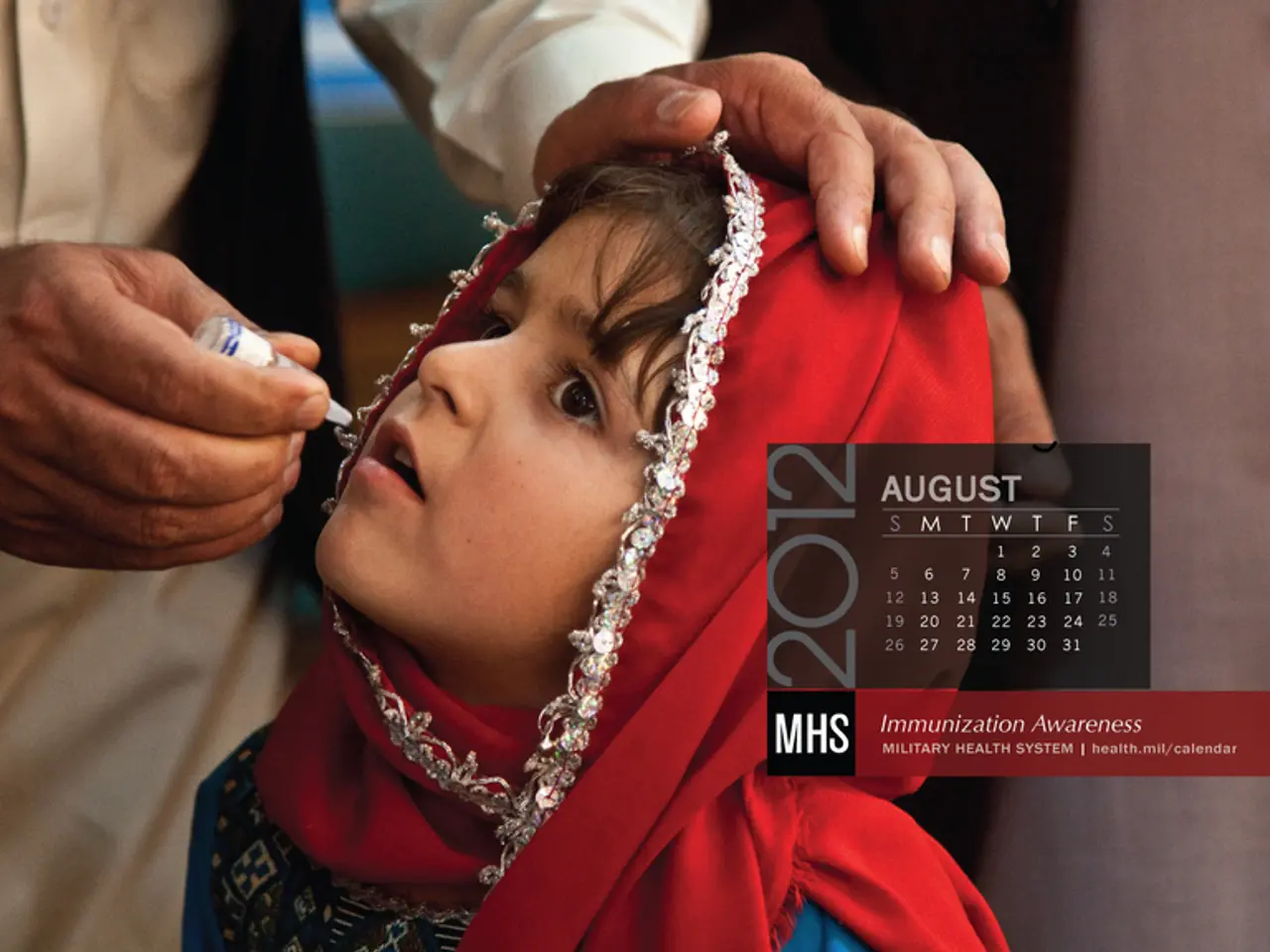In the distribution planning for COVID-19 vaccines, only twenty states embraced health equity committees.
The University of Chicago Medicine, one of the nation's leading academic health systems with a history dating back to 1927, has been at the forefront of a significant study on health equity in COVID-19 vaccine distribution plans.
The study, titled "US National Evaluation of Health Equity in COVID-19 Vaccine Distribution Plan," was supported by the American Diabetes Association, the National Institutes of Health, and the Centers for Disease Control and Prevention. The research, published in JAMA Network Open, found that only 20 out of 43 states with vaccine distribution plans mentioned using a health equity committee to assist with plan development.
Sickle cell disease, more common in African-Americans, was only listed as a high-risk condition in 72% of plans. Diabetes and obesity, on the other hand, were the most common high-risk conditions listed. The study's findings suggest that states could do better in developing consistent parameters for high-risk patient populations in vaccine distribution.
Juan C. Rojas, the senior author of the study, emphasizes the importance of having a standardized process for equitable vaccine distribution, acknowledging existing healthcare disparities. The research aims to help inform ongoing COVID-19 vaccination efforts and guide policies for potential future healthcare crises.
The University of Chicago Medicine operates ambulatory facilities in Orland Park, South Loop, and River East, and a regional network of care through affiliations and partnerships. The main Hyde Park campus is home to the Center for Care and Discovery, Bernard Mitchell Hospital, Comer Children's Hospital, and the Duchossois Center for Advanced Medicine. UChicago Medicine, together with Harvey-based Ingalls Memorial, has 1,296 licensed beds, nearly 1,300 attending physicians, over 2,800 nurses, and about 970 residents and fellows.
The study was conducted by a team that included Amber Hardeman and Joshua Denson of Tulane University, and Taylor Wong and Radu Postelnicu of the New York University Grossman School of Medicine, in addition to the University of Chicago Medicine researchers.
The researchers analysed early versions of these plans, acknowledging that most remained in "draft" status throughout their analysis. The study also did not mention the eight states where the members of the Health Equity Committee for the development of the COVID-19 vaccination plan included at least partly representatives of minority groups.
The team hopes to investigate how the plans translated to outcomes in vaccine distribution in future studies. For updates on health and science news from the University of Chicago Medicine, visit http://www.uchicagomedicine.org/forefront, follow them on Twitter (@UChicagoMed), or like them on Facebook (Facebook.com/UChicagoMed and Facebook.com/UChicagoMedComer).
Read also:
- Understanding Hemorrhagic Gastroenteritis: Key Facts
- Stopping Osteoporosis Treatment: Timeline Considerations
- Tobacco industry's suggested changes on a legislative modification are disregarded by health journalists
- Expanded Community Health Involvement by CK Birla Hospitals, Jaipur, Maintained Through Consistent Outreach Programs Across Rajasthan








